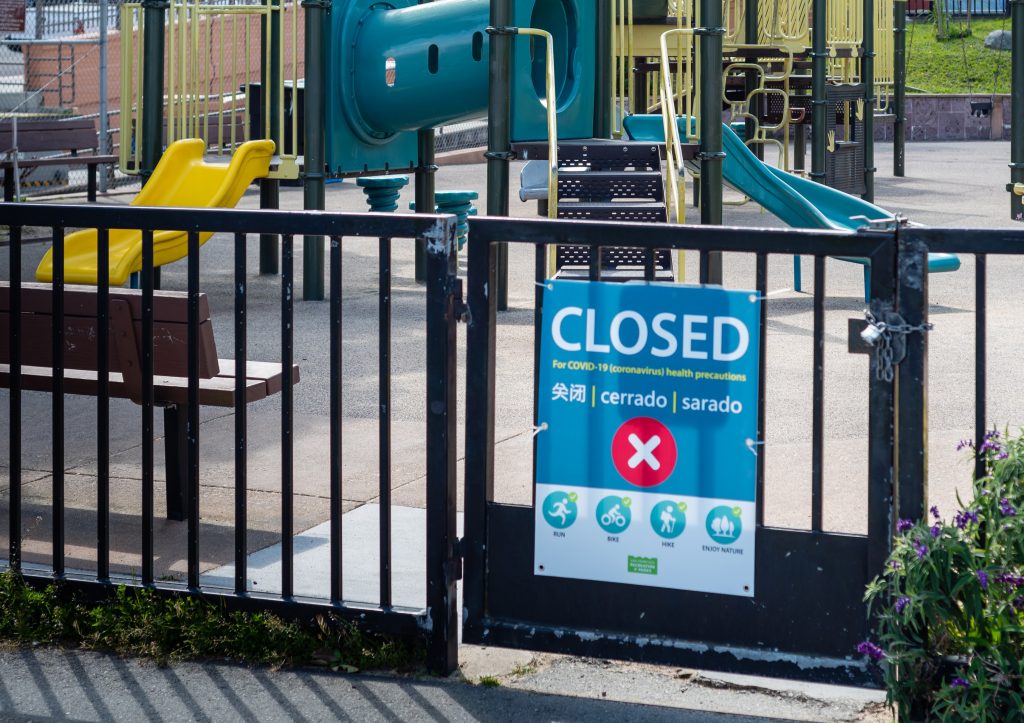By Michael Ollove
Stateline, an initiative of
the Pew Charitable Trusts
COVID-19 has scrambled the meaning of American exceptionalism.
For a century or more, the United States has been a beacon of hope and strength to the rest of the world. But its response to the pandemic, many public health experts say, has been uniquely hapless, ineffective, undisciplined and selfish. By some measures, the United States has handled the health crisis as badly as any country has.
Although the United States represents only 4% of the world’s population, it accounts for a quarter of all COVID-19 cases and 22% of all deaths.
The country whose military and economic might won the Second World War, and whose confidence and technological wizardry planted the first human being on the moon, now finds itself as a reverse role model during the worst public health crisis in a century.
“The U.S. response — I exaggerate not — is a textbook example of how to do it wrong,” said Dr. William Schaffner, an infectious disease specialist at Vanderbilt University Medical Center.

To be sure, some American states, particularly in New England, have fared better than others, but that only reflects the disjointed national response, epidemiologists say.
Relatively successful countries such as Denmark, Germany, Senegal and Thailand have put out messaging that is clear, consistent and transparent. They have implemented nationwide policies guided by science rather than politics. And above all, they have exerted strong national leadership.
“The first thing I would say is that they have had a national policy,” Schaffner said. “That is also the second, third and fourth thing. They had a national policy. That national policy was decided on very quickly and it was communicated clearly and consistently and based on public health principles.”
Community spirit has proven stronger elsewhere than in the United States, say some health policy experts.
NDG 8/20 issue: Voter Suppression. The Birth of Apathy.
“One of the things that strikes me about the rest of the world compared to the U.S. is there is much more of a community sense,” said Dr. Krutika Kuppalli, vice chair of the Infectious Diseases Society of America’s Global Health Committee and an infectious disease doctor who has worked in Asia and on Ebola in Africa. “The U.S. is much more about ‘I’ than ‘we,’ whereas in other countries it’s more ‘we’ than ‘I.’
“In a pandemic, the thing has to be about ‘we’ not ‘I.’”
Anna Petherick, a researcher at the School of Government at the University of Oxford, which analyzes government COVID-19 responses, said Americans show a lot of skepticism toward government directives.
“There are good things about that attitude, but it doesn’t serve the country well at a time of crisis when you need to coordinate, when you perhaps need to give up personal freedom for the collective good.”
South Korea and the United States both recorded their first cases Jan. 20, yet South Korea has held its outbreak level to 30 cases per 100,000 people, compared with the U.S. figure of 1,655 per 100,000.
Last week, New Zealand had gone 100 days without detecting a single example of community spread of the virus before encountering an outbreak that prompted the government to postpone the general election for a month. The United States surpassed 5 million cases and 160,000 dead around the same time, with cases mounting in six states and high transmission rates prevailing in more than a dozen others.
Countries such as South Korea and Denmark have removed nearly all coronavirus-related restrictions. In the United States, authorities in numerous hotspots have either had to pause or roll back reopening some businesses. Hundreds of public health experts and medical professionals have signed on to a letter calling for a national shutdown now, in the sixth month of the pandemic.
“If our response had been as effective as South Korea, Australia, or Singapore’s, fewer than 2,000 Americans would have died,” their letter asserts. “We could have prevented 99% of those COVID-19 deaths. But we didn’t.”
NDG 7/13 issue: The more things change the more they stay the same
Last week, White House senior adviser Jared Kushner defended the Trump administration’s strategy. In an interview with CNBC, he said the administration led by overseeing the procurement, production and distribution of masks, ventilators and other resources.
“With regards to a national strategy, the job of the federal government was to get the resources that the country needed,” said Kushner, who is also the president’s son-in-law.
“You heard all these hysterical reports about doctors on the front lines not being able to get masks, not having enough ventilators, you had governors requesting a lot more ventilators than they needed, and again, every patient in America that needed a ventilator got a ventilator, President Trump distributed them properly,” Kushner said.
Read more on the study here.




